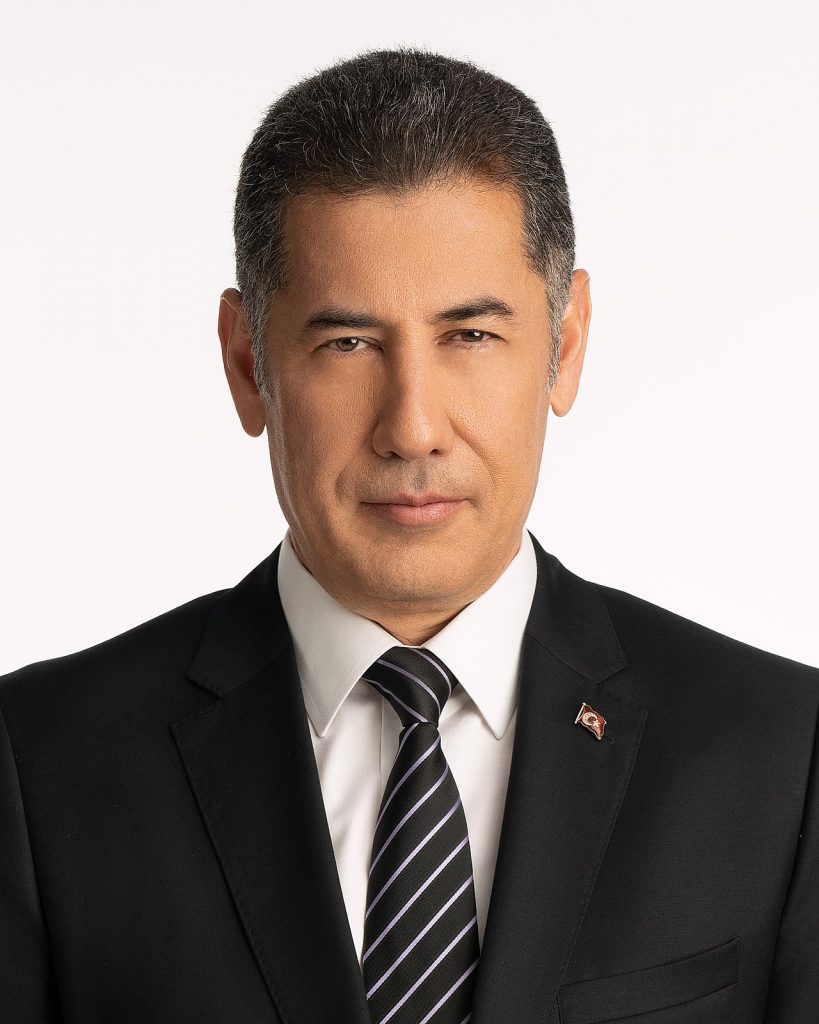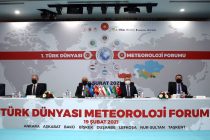Sunday saw a record number of Turks go to the polls to vote in the Presidential and Parliamentary Elections. All eyes were on the incumbent, Recep Tayyip Erdoğan, and whether, after two decades in charge, he could hold on to the top job.
A total of 64.1 million electorate, including 3.4 million citizens abroad and 6 million first-time voters, were eligible to vote and help determine the future of their country as election fever hit Turkiye and the wider world.
According to the Turkiye’s Supreme Electoral Board (YSK – Yüksek Seçim Kurulu), turnout on Sunday was a record 88.92% for voters inside Turkiye (turnout had been 86.4% in 2018) and 52.69% among voters abroad.
More than 192,000 polling stations were used across Turkiye for Sunday’s elections, with the electorate able to cast their ballots from 8am in the morning until 5pm in the evening.
All overseas voting, made possible in 73 different countries, had been completed by 9 May.
The first results started to come through within a few hours of the polls closing. Official sources showed Erdoğan ahead of his biggest rival, Kemal Kılıçdaroğlu throughout the night and, with virtually all ballots counted by Monday morning, it was clear neither man had secured enough votes to win in the first round.
The presidential race officially had four candidates, but was effectively down to three when Muharrem İnce pulled out of the race on Thursday.
Unofficial national results in Turkiye’s Presidential Election are as follows:
- Recep Tayyip Erdoğan: 49.5%
- Kemal Kılıçdaroğlu: 44.89%
- Sinan Oğan: 5.17%
- Muharrem İnce*: 0.44%
* İnce announced his withdrawal from the race on Thursday, but it was too late to remove his name from the ballot papers or cancel out any of the votes he had already received from overseas voters.
Controversy and confusion
Election night was marred by claims of foul play from the opposition, who accused Erdoğan’s party members of making ludicrous objections to results where Kılıçdaroğlu had won. The objections meant a recount was necessary for multiple ballot boxes, delaying the outcome from being officially announced and added to the publicly released tally until much later.
This meant Erdoğan was ‘misleading’ always ahead in the figures circulated to media during the count, giving him and his supporters a strong and unfair psychological boost, according to Kılıçdaroğlu’s supporters.
Such was the concern about the data being supplied to media by Anadolu Agency, the state-owned news agency, that popular Turkish channel Halk TV announced in the middle of its election broadcast that it was going to switch to another source. The channel’s presenters, along with political figures from the Republican People’s Party (CHP), accused AA of “manipulation”.
Halk TV, one of the few channels to give major airtime to the opposition, instead reverted to data provided by election monitors, who would send across scanned evidence of the verified and signed off election results.Their data showed the gap between Erdoğan and Kılıçdaroğlu to be far closer than the 20-point lead Anadolu Agency figures had suggested the president had opened up in the race.
The controversy over the actual number of votes for each candidate created chaos and confusion for the Kılıçdaroğlu camp and their supporters, and the wider public on election night.
YSK denied there was any wrong doing, but YSK head Ahmet Yener did acknowledge there had been big delays in updating the results, which he blamed on record turnouts.
With questions still remaining over multiple ballot box counts and other anomalies, YSK have stated they will not be able to declare the official results of Sunday’s two elections until Friday 19 May.
Run-off on 28 May 2023
They did, however, confirm on Monday afternoon that, even with the inconclusive results, no candidate had passed the 50% threshold required to win the presidential race outright on Sunday. As a result, they declared a second vote necessary, to be held between the two highest polling candidates, Erdoğan and Kılıçdaroğlu, on Sunday, 28 May.
While both men accepted the outcome of the vote, the opposition’s disappointment was palpable as virtually all opinion polls going into the race had given Kılıçdaroğlu a lead over President Erdoğan.
Likened to Gandhi due to his appearance, the 74-year-old veteran politician has a poor electoral record against Erdoğan, but has refused to make way for a new leader of the centre- CHP, which he has led since 2010.
Many had wanted Ekrem İmamoğlu to stand as CHP’s 2023 presidential candidate, believing he had the best chance to beat Erdoğan following his impressive victory against the AKP candidate in the 2019 Istanbul Mayoral contest. But İmamoğlu was unable to stand due to a dubious legal decision against him, prompting Kılıçdaroğlu to present himself as the ‘unity’ candidate.
The CHP leader formed a coalition of six, called the ‘Millet’ Alliance, that includes nationalists, Muslim democrats and former senior members of Erdoğan’s Justice and Welfare Party (AKP): ex-Prime Minister Ahmet Davutoğlu, and former AKP Ministers Ali Babacan and Sadullah Ergin.
Although not formally part of the coalition, the pro-Kurdish Peoples’ Democratic Party (HDP), which commands about 10% of the electorate, had agreed not to field a candidate in the presidential election to boost Kılıçdaroğlu’s. chances.
Support from the “Table of Six” plus HDP and other smaller left-wing parties proved to be insufficient to dislodge the autocratic Erdoğan, 69, who is arguably at his weakest since coming to power in 2003.

In the past few years, the Turkish economy has tanked due to the President Erdoğan’s unorthodox economic policies, which have led to the Turkish lira plummeting in value, while causing inflation to soar, creating a massive cost of living crisis.
Add to this, the presence of millions of refugees, the constant stifling of freedom of expression, government interference with the judiciary, a huge increase in violence against women, and the fallout from the devastating earthquake that struck eastern Turkiye in February, killing over 50,000 people and destroying many towns and cities, there is major discontent among large swathes of the Turkish electorate.
Despite these very serious domestic problems, around half the country remained loyal to Erdoğan and his own unlikely coalition, the ‘Cumhur’ Alliance, which includes the far-right Nationalist Movement Party (MHP) and Hüda-Par – a Kurdish Islamist party often likened to Hezbollah.
For some it is a case of ‘better the devil you know’, while for many others, Erdoğan is a “strong” leader who is most likely to resolve these major issues, pointing to how he has already transformed the country and made it a force to be reckoned with again during this 20 years in power.
Identity politics runs deep in Turkiye and for the most pious Sunni Muslim conservatives, the thought of an Alevi leader – Kılıçdaroğlu – reverting the country back to a secular society runs counter to their beliefs and values. Erdoğan may not have formed an Islamic republic, but he has put faith at the heart of Turkish society and politics.
For many nationalists too, Kılıçdaroğlu is seen as “weak”, accommodating West interests, even where they compete or undermine those of Turkiye. They abhor his decision to work with the pro-Kurdish HDP, believing it gives backdoor access to the PKK and their demands for greater autonomy for the Kurdish areas of eastern Turkiye.
Sinan Oğan – the kingmaker
The key man to emerge from Sunday’s presidential election is Sinan Oğan, who garnered 5.17% votes — enough to push either of the top two candidates across the 50% threshold to win.

Both camps have been in touch with the potential kingmaker, who has yet to declare which side he will back.
The staunchly secular Kemalist was formerly a Member of Parliament for MHP, but fell out with his party leader, Devlet Bahçeli in 2015 over MHP’s alliance with President Erdoğan and his desire to switch to a presidential system, which Oğan is fiercely against. His opposition Bahçeli and campaign to stop the presidential system led to his expulsion from the party.
Given the background, it’s hard to see Oğan join forces with Erdoğan or rekindle his ties with Bahçeli, but the prospect of a top job in government may encourage the former academic of Azerbaijani roots to set aside his personal and ideological differences.
Oğan is standing under the far-right ‘ATA’ Alliance and has made it clear he is equally disillusioned with the Kılıçdaroğlu camp. The informal alliance with HDP, given its links to terror group the PKK, is a red line for Oğan and his ATA base, as is the presence of ex-AKP members.
Although Kılıçdaroğlu faces an uphill battle to beat Erdoğan in the run-off, much could still change in the next 12 days as voters weigh up on the eve of the Turkish Republic’s centenary which man can deliver a better future for the country.





